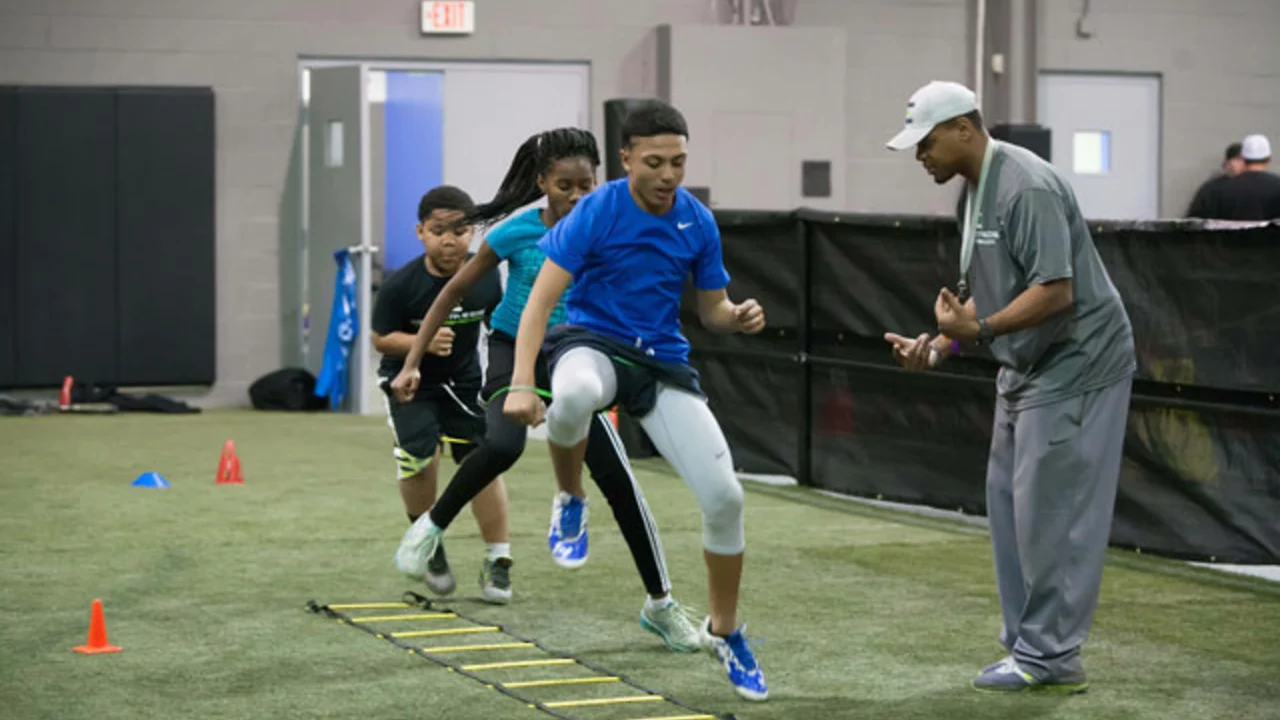Understanding the Power of Effective Coaching
Did you ever question why some athletes excel while others struggle to reach new heights? Is it purely physical strength, or is there something more behind it? Let Maverick (and Baxter if he could talk) introduce the power of effective coaching in athletics! Beyond building the physique or skills necessary for the sport, coaching plays a crucial role in shaping an athlete’s mindset, strategy, endurance, and overall performance. If you find yourself intrigued by this concept and need to explore more, you might be thinking, "write my essay now" to dive deeper into this fascinating subject.
The secret sauce of success often boils down to the quality of coaching. Whether we talk about Usain Bolt’s speed or Michael Jordan’s magic on the court, there always lies a tireless mentor behind their grand achievements. The beauty of effective coaching, however, is in its complexity – it's not just about training harder or longer; it's about understanding the strengths and weaknesses of each individual athlete and utilizing them to the best advantage. So, let’s buckle up and dive into the world of effective coaching. Oh, and Baxter kindly asks you to ignore his spontaneous barking in the background.
The Dominance of Omnivariant Learning
You may be wondering, what on earth is Omni variant wonder, what is Omni variant learning on earth located as it sounds. Athletes are diverse in how they process information. Some may learn better through visuals, some by listening, and others prefer kinesthetic or tactile learning experiences. Effective coaching learns (and here comes the fancy term) to become ‘omnivariant,’ i.e., adapting teaching methods based on the learner’s needs. It's a bit like how I train Baxter. Some days, he's all about fetching the ball, while other times, he could spend hours figuring out that new trick for extra treats!
This learning model does not box the athlete into one-way communication. Instead, it fosters an understanding environment wherein the athlete's comfort level reaches an optathlete's level. Baxter surely can relate. Just as we ensure Baxter doesn’t find his tricks stressful or tedious, an athlete must enjoy and learn from the enthralling journey of improvement.
The Irreplaceable Value of Constructive Feedback
Feedback, my dear readers, is not simply a vague, generic comment. If I told Baxter, "Good job," every time he merely chases his tail, he'd be spinning in circles all day! No, feedback is about precision, specificity, and timeliness. In athletic coaching, success can often boil down to these pointed, valuable pieces of advice.
To maximize an athlete's input, coaches should focus on giving feedback that's directly related to the performance, providing not just a critique but also constructive suggestions for improvement. Think how your music teacher pointed out incorrect finger placement on the piano keys and then demonstrated the correct position – that’s the power of constructive feedback. Likewise, a coach might point out an improper tennis swing but then show the correct form and practice it with the athlete.
Embracing the Holistic Approach: Mind, Body, and Spirit
Athletic performance is not simply a matter of the physical body. We've all heard it, and I've personally lived it. Mental health, emotional wellbeing, and yes, even spiritual strength play significant roles as well. There are plenty of times I've been out on a walk and Baxter has suddenly decided to show me up by doing a couple extra laps around the park. Is it because he's physically stronger? Certainly not! (No offense, Baxter). It's about the spirit, the determination, and the sheer joy of running free.
Athletes need to have the mental and emotional resilience to face the immense pressures and expectations on the field. Effective coaching understands this and therefore, looks beyond physical readiness. A coach may incorporate several techniques like visualization, goal-setting or even meditation into the training schedule. This approach fosters better athletic performance and contributes immensely to personal indent, making us better equipped to handle life’s challenges, just like Baxter, who mastered the art of patience while waiting for his treats.
Creating a Community: Building Unity and Trust
Did you know, collective resilience and shared commitment play a significant role in group sports? From my experience, I can tell you there's a world of difference in performance when you're part of a team that trusts, respects, and supports each other. I remember playing in a local soccer league where our strongest asset wasn't any star player but our unity as a team. Compare it to how our four-legged buddy Baxter responds when he sees a familiar face. It’s the sense of belonging that does the magic!
Similarly, a coach can greatly boost the efficiency and presentation of performances by creating an environment of trust and cooperation. Formulating a coaching strategy that includes team-building activities, encouraging open communication, and promoting a positive community can do wonders for the athletes, both on and off the field. Imagine creating a playbook not just for the game but also for fostering the game and its effective coaching.
In summary, effective coaching is not a monolithic strategy or technique. It's an amalgamation of different methodologies tailored for the individual or team, just like that perfect combo Baxter gets of exercise, play, and his beloved treats. Whether you are an athlete seeking to improve or a coach refining your techniques, always remember - it's not just about physical prowess but holistic growth, the perfect blend of mind, body, and spirit, and the power of unity. So, let's lace up our shoes (or paws) and run towards our goals with might and gusto!

